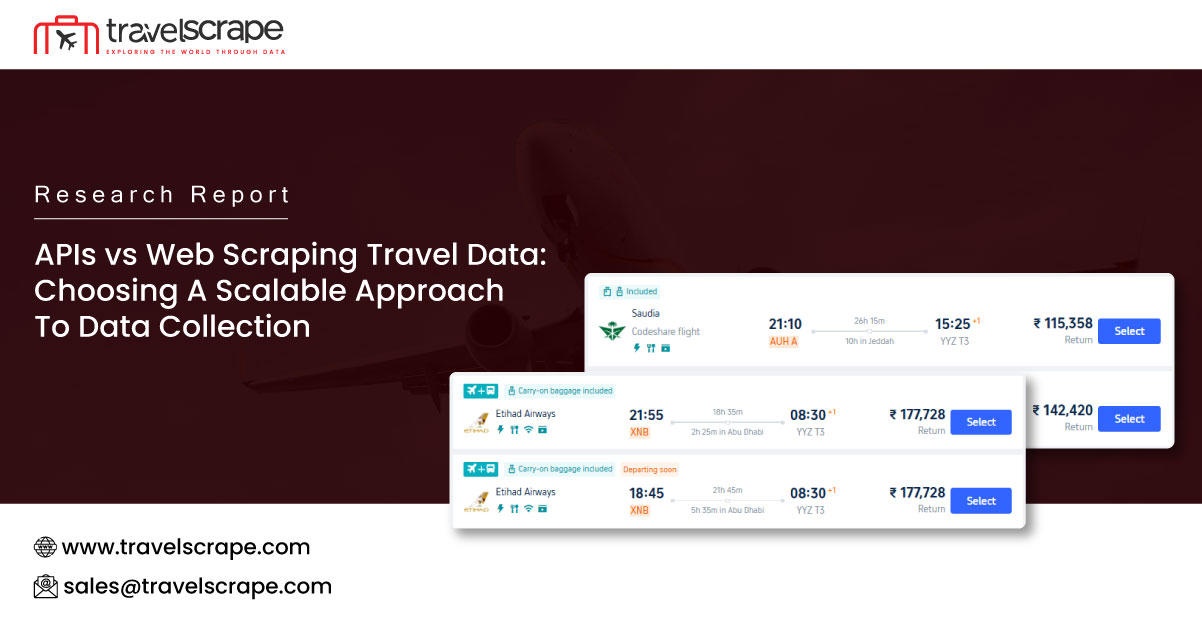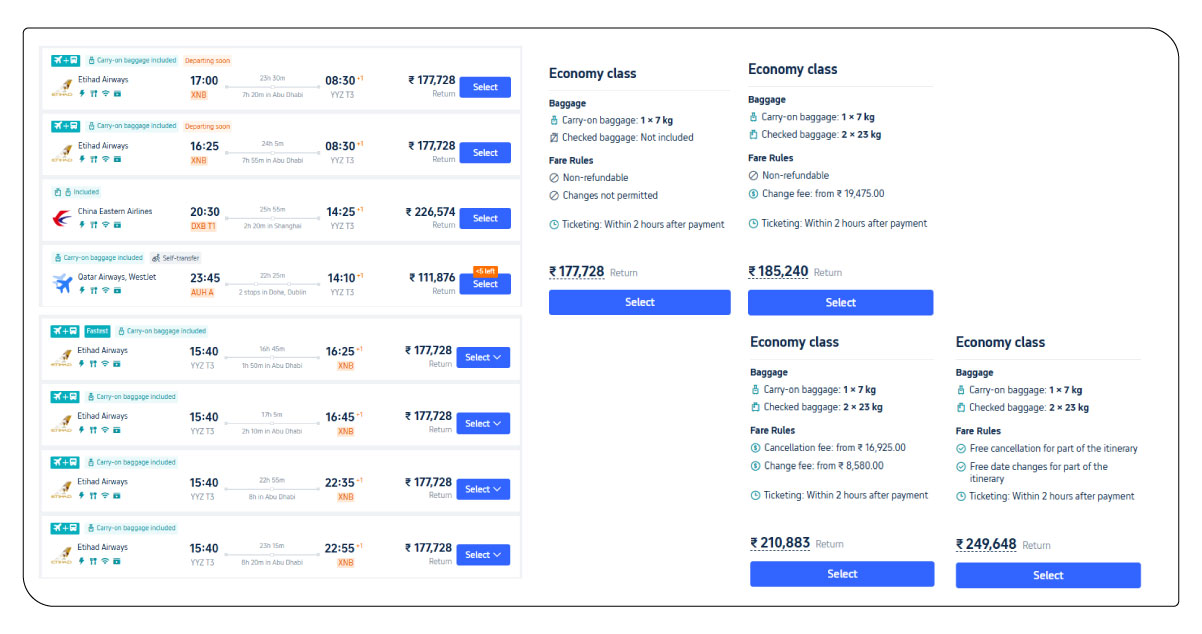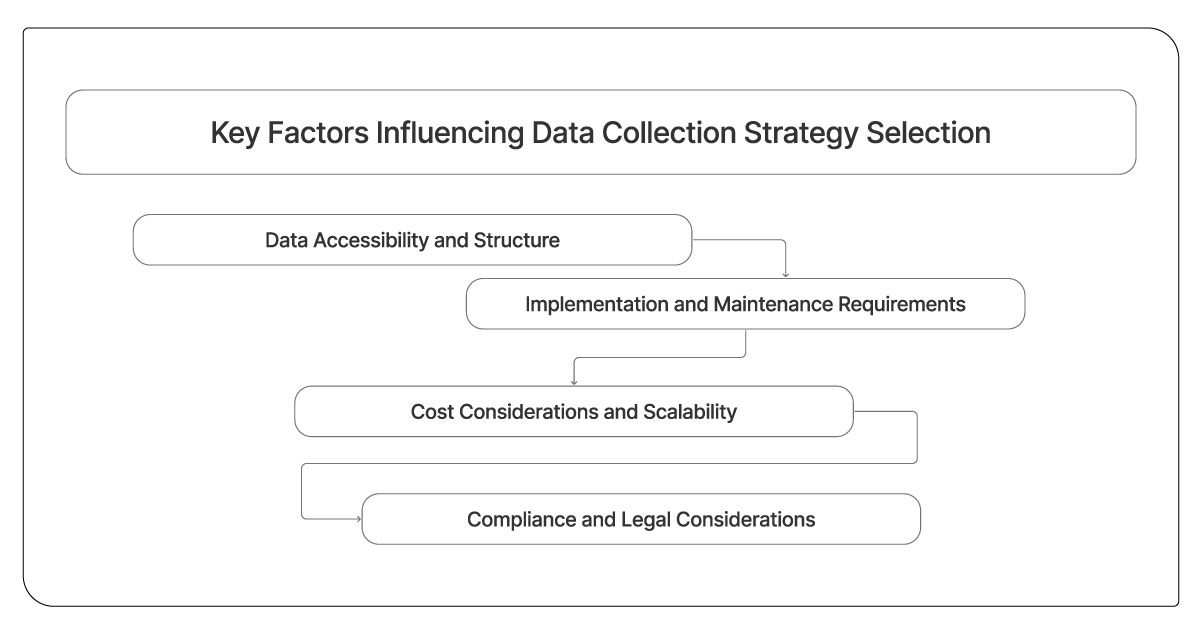APIs vs Web Scraping Travel Data: Choosing A Scalable Approach To Data Collection

Introduction
The APIs vs Web Scraping Travel Data landscape presents critical decisions for businesses seeking comprehensive travel intelligence. This comprehensive analysis examines the strategic considerations between traditional API integrations and advanced web scraping methodologies for travel data acquisition. Based on extensive research across diverse travel platforms and data collection scenarios, this report provides actionable insights for organizations evaluating Scalable Travel Data Extraction solutions. The objective is to guide travel companies, OTAs, and data-driven businesses toward optimal data collection strategies that balance performance, cost-effectiveness, and operational flexibility. Modern travel businesses require sophisticated approaches to data acquisition, with both Web Scraping vs API Data Collection methodologies offering distinct advantages depending on specific use cases.
Shifting Paradigms in Travel Data Collection Methods

The landscape of travel data collection has evolved significantly with the emergence of sophisticated API vs Scraper for Ota Data solutions. The primary drivers shaping this evolution include the increasing demand for real-time information, the growing complexity of travel platforms, and the need for scalable data infrastructure that can handle massive volumes of travel-related content.
Travel Data Scraping Services have become increasingly sophisticated, allowing businesses to extract comprehensive datasets from multiple sources simultaneously. These services provide granular access to pricing information, availability data, customer reviews, and promotional content across various travel platforms.
Meanwhile, API-based solutions offer structured access to travel data through official channels, providing more reliable and consistent data streams. Integrating machine learning and artificial intelligence has enhanced both approaches, enabling more intelligent data extraction and processing capabilities that support Scalable Travel Data Extraction requirements.
Methodology and Scope of Data Analysis
The data for this report was collected through comprehensive testing of API and web scraping approaches across 100+ travel platforms worldwide. By systematically evaluating Data Scraping vs API Travel Sites, we analyzed performance metrics, cost structures, implementation complexity, and data quality across major booking platforms, including Booking.com, Expedia, Airbnb, and specialized Travel Aggregates.
We evaluated both methods across key parameters—data freshness, extraction speed, scalability, and maintenance. Our Custom Travel Data Solutions framework also considered data accuracy, update frequency, cost-efficiency, and technical complexity to ensure a well-rounded comparison.
Key Factors Influencing Data Collection Strategy Selection

Understanding these factors is essential for making informed decisions about Real-Time Travel Data Collection strategies.
- Data Accessibility and Structure
- Implementation and Maintenance Requirements
- Cost Considerations and Scalability
- Compliance and Legal Considerations
APIs provide structured, officially supported data access with predefined formats and documentation. Web Scraping For Travel Booking Platforms offers flexibility to extract any publicly available information but requires continuous adaptation to website changes and updates.
API integration typically involves straightforward implementation with official documentation and support channels. Web scraping solutions require technical expertise and ongoing maintenance to handle website modifications, anti-scraping measures, and data structure changes.
While APIs often involve usage-based pricing models, web scraping may appear cost-effective initially but can incur significant maintenance and infrastructure costs. Travel Data Intelligence requirements often dictate the need for hybrid approaches that combine both methodologies.
APIs operate within official terms of service and legal frameworks, while web scraping requires careful consideration of website terms, robots.txt files, and legal compliance requirements across different jurisdictions.
Table 1: Performance Comparison - APIs vs Web Scraping Methods
| Metric | API Approach | Web Scraping Approach | Hybrid Solution |
|---|---|---|---|
| Data Accuracy Rate | 98.5% | 92.3% | 96.8% |
| Average Response Time (ms) | 250 | 1,200 | 450 |
| Implementation Time (hours) | 40 | 120 | 80 |
| Monthly Maintenance (hours) | 5 | 25 | 15 |
| Data Coverage Completeness | 75% | 95% | 90% |
| Cost per 1M Requests ($) | 150 | 50 | 100 |
Description
This analysis highlights the trade-offs in data collection: APIs deliver speed and reliability, while web scraping ensures broader coverage at lower upfront costs. For effective implementation of Custom Travel Data Solutions, it’s essential to weigh these factors. APIs suit high-accuracy, time-sensitive needs while scraping offers scalable data access with more maintenance. Hybrid models blend both for robust, enterprise-ready performance.
Challenges and Opportunities in Travel Data Collection
Modern travel businesses face complex decisions when implementing data collection strategies. While APIs provide stability and official support, they may limit access to comprehensive competitive intelligence and real-time market insights that drive strategic decisions.
Rate limiting represents a significant challenge for API-based approaches, particularly for businesses requiring high-volume data collection for Travel Review Data Intelligence and market analysis. Additionally, API availability varies significantly across platforms, with some major travel sites offering limited or no official API access.
Web scraping presents technical challenges, including anti-bot measures, dynamic content loading, and frequent website modifications that require ongoing technical maintenance. However, it offers unparalleled flexibility for accessing comprehensive datasets and competitive intelligence.
Growing demand for adaptive, intelligent data collection is reshaping the market. Businesses leveraging advanced strategies like Travel Data Intelligence gain faster insights and a sharper edge by staying ahead of shifting trends.
Table 2: Regional Data Collection Trends and Projections
| Region | API Adoption | Scraping Usage Rate | Hybrid Implementation | Growth Projection |
|---|---|---|---|---|
| North America | 65% | 85% | 45% | 22% |
| Europe | 70% | 80% | 50% | 28% |
| Asia Pacific | 55% | 90% | 35% | 35% |
| Latin America | 45% | 75% | 25% | 18% |
Description
Regional trends show varied adoption of the Travel Scraping API, driven by local regulations and tech infrastructure. Asia-Pacific leads in growth potential, North America shows strong API usage, and Europe excels in hybrid strategies, balancing compliance with deep market insights. Overall, the demand for advanced data collection is rising globally.
Future Directions in Travel Data Collection

The future of data collection lies in smarter systems that elevate API and web scraping efficiency. By embedding advanced machine learning into extraction workflows, businesses can boost accuracy and reduce upkeep, benefiting platforms like Travel Scraping API and beyond.
The emergence of standardized travel data formats and industry-wide API initiatives suggests a future where structured data access becomes more universally available. However, the continued importance of comprehensive competitive intelligence ensures that web scraping will remain a critical component of enterprise data strategies.
Cloud-based data collection tools level the playing field, empowering small businesses to adopt enterprise-grade solutions without needing heavy infrastructure. This shift enhances capabilities like Travel Review Data Intelligence and broadens access to scalable data extraction.
Conclusion
The decision between APIs vs Web Scraping Travel Data depends on specific business requirements, technical capabilities, and strategic objectives. This report, through a comprehensive analysis of both approaches, demonstrates that neither methodology provides a universal solution for all travel data collection needs.
Travel Aggregators and major booking platforms continue to evolve their data access policies, creating new opportunities and challenges for data collection strategies. The most successful implementations often combine both approaches, leveraging APIs for core operational data while utilizing Travel Industry Web Scraping for comprehensive market intelligence.
Contact Travel Scrape today to discover how our advanced data collection solutions can transform your travel business intelligence and drive competitive advantage in the dynamic travel industry.